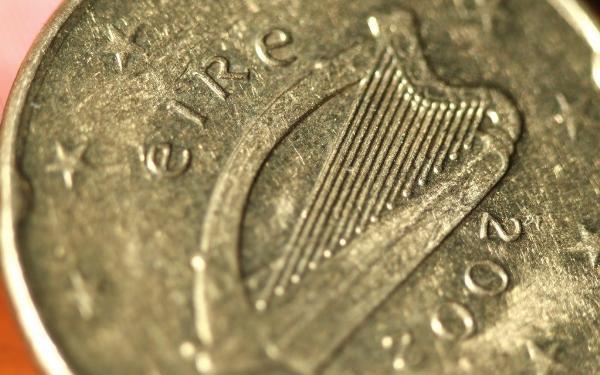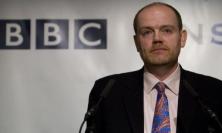The effects of the global economic downturn have been felt acutely in Ireland, where the population has experienced record growth in their economy over recent years. Gerry O’Hanlon SJ contributes to Thinking Faith’s Lenten series by using the Irish example to show how embracing austerity can lead to a different way of thinking: is this an opportunity to introduce the notion of the common good into a new economic paradigm?
It was reported earlier this month that the hundreds of applicants for a handful of jobs at the opening of a new McDonald’s in Ennis, Co Clare, included bankers, architects and accountants. The Celtic Tiger didn’t ‘do’ austerity very well. Might it be that in our new situation of recession we will make a virtue out of necessity and begin to understand that a modicum of self-denial is not always simply a penance, but can also become an exercise in self-liberation? Such, at least, seems to have been the thinking of Archbishop Desmond Tutu, who, on a recent visit to Dublin, suggested that recession may not be an entirely bad thing for Ireland. The downturn, he said, ‘also allows your natural instinct, which may have been blunted somewhat by greed and riches, to return, to get back to the real you, and the real you is someone who will care’ (as quoted by John Waters, The Irish Times, Friday 27 February 2009).
Anger
But, in truth, the mood in Ireland in these days seems to be less that of Lenten sackcloth and ashes and more that of discontented and often righteous indignation. At first, people seemed almost in denial about the prospect of recession, then bewildered by the pace of the downturn. Now however, as the reality bites, one can sense a growing public and private discontent, anger, anxiety, even fear and desperation.
One can appreciate why the mood is ugly in these worrying times. Our economy – after years of unprecedented growth – is in recession, unemployment is rising sharply, there has been a severe deterioration in the state of our public finances, we are faced with unpalatable cut-backs in services and our banking system is fighting for its survival. The spectre of mass emigration once again looms: but to where? In previous recession, emigration was used as a kind of safety valve to provide employment – now, at a time of global recession, this is less likely to offer an adequate solution.
Of course people understand, at least at a notional level, that what is happening is not unique to Ireland, and indeed that the causes are not merely home grown (one thinks of the international ‘credit crunch’ and the socially irresponsible behaviour of financial markets, which have often seemed to behave in the smoke and mirrors manner of giant gambling casinos). But, naturally, we are more conscious of our own situation and of our own complicity in what went wrong. The ‘heedless self-interest’ model of infinite growth capitalism referred to by Roosevelt in his second inaugural address, with its focus on high-risk, short-term gains, was replicated in Ireland over recent years through an excessive reliance on our construction and property sector in an economy that was becoming increasingly uncompetitive (we were paying ourselves too much, exports declined, and tax revenues reduced drastically when the property bubble burst).
And now the hunt is on for scapegoats: bankers, property developers, politicians – all are experiencing the ire of a public and media which sometimes forget that, to at least some extent, many more (all?) of us were complicit in all this. After all, we voted in the same government for the third time running, we have incurred record levels of personal debt, we enjoyed the good times. Of course the leaders, the power brokers in society, bear a particular responsibility for what went wrong over the boom years. But, culturally, there was spontaneous support for personal autonomy and the unregulated power of vested interests. And so, in Bernard Lonergan’s helpful phrase, this individual and group bias which permeated our culture over these past years, solidified into a ‘bias of common sense’, whereby it became difficult to argue against the encouragement to ‘party on’ and hard not to avoid a sneaking regard for the hedonistic ‘greed is good’ mantra – even when, like the Israelites of old, we were uneasily aware in a part of our minds that this was idolatry, and there was even the occasional prophet who told us so.
Now we are reaping the whirlwind of this idolatry, we begin to taste the austere pungency of Steinbeck’s Grapes of Wrath. And in this context the Ash Wednesday words of another Archbishop, Diarmuid Martin of Dublin, are apposite:
I do not like the ‘a little bit of recession is good for the soul’ argument…the tragic thing is that those who lived well in times of prosperity will live reasonably well in times of recession. Those who are poor or who are in a position of precariousness will pay the terrible price of becoming poorer and find themselves in an even more precarious situation. (The Irish Times, Friday 27 February 2009)
The ‘savage capitalism’ that has predominated excessively in Ireland and world-wide bears less resemblance to the heroic, if mistaken, hubris of Daedalus and Icarus than to the squalid antics of novelist Tom Wolfe’s Masters of the Universe, putting the making of money at the centre of our lives and imbuing our culture with an acquisitiveness and greed which are infectious and which lead all too surely to the kind of Bonfire of Vanities which we are now experiencing.
Taking stock
Lent, and the austere space which it invites us to enter, can provide the opportunity to take stock, to plot a way forward by learning from the past. After all, this is what repentance, conversion, metanoia, is about – an inner change, which leads to a change in behaviour.
In this context the Christian response calls for something more serious than rhetorical moralising. Again, in Lonergan’s words, we need to seek intellectual as well as moral conversion. We need cool heads as well as passionate hearts. Part of this coolness will be an avoidance of throwing out babies with bathwater, as if everything in the past ought to be condemned. In fact, while it is wise to acknowledge, certainly in Ireland, that our recent past was characterised by some greed and by an almost giddy recklessness (new wealth went to our heads), still there were many good points too. We achieved almost full employment, there was a reduction in levels of consistent poverty, there was a vibrant spirit of entrepreneurship abroad, and national self-confidence was enhanced with beneficial effects not least for peace in Northern Ireland and a more serene relationship with England and Britain in general. On the down-side there were continuing rates of relative poverty and the squandering of opportunities to enhance public services, particularly in areas like health, education, social housing and penal reform. And, of course, worldwide, particularly in India and China, there has been a significant increase in the numbers of those who are consistently poor.
Many commentators put great store by a renewed emphasis on effective regulation, in Ireland and worldwide, to heal the flawed model of capitalism which delivered so many benefits. And in Ireland certainly, where there is ample evidence of an excessively cosy relationship between power brokers like politicians, property developers and bankers, the move beyond a ‘light-touch’, principles-based regulatory system to include also a rules-based system will undoubtedly be helpful. But one senses that a lot more is required, and that perhaps this crisis is also a kairos, an opportunity for more radical ideas to emerge that will obviate the danger of a return to ‘business as usual’, with, as Clifford Longley put it recently, another unexploded bomb under the global economy, waiting to go off.
Ways forward
The neo-liberal model of capitalism that has tended to dominate the global economy in recent decades, for all its benefits, had many serious defects. At the more personal level it created a world in which the dignity and value of the human person became in some way secondary to the pursuit of wealth, so that, for example, in Ireland young couples leave their children in crèches at 7.30 in the morning, to head out on long commutes to work, returning late in the evening and desperately, wearily trying to enjoy some ‘quality time’ with the children before putting them to bed.
At a societal level it created a world which encouraged the kind of egregious inequalities which we see evident in the contrast between the salaries of chief executives and those of the worker on the floor or in the office – not to mention the myriad of other extreme inequalities of the system, from which the professions (one thinks in particular of the legal and medical professions) are not immune, and which, rightly, are the source of much anger in these days. And, of course, globally, the inequalities are much more stark, and there is a real fear that the Millennium Development Goals, in particular the elimination of poverty, may not be realised as national governments are tempted to go into protectionist mode in a bid to serve the short-term interests of their own people. Ironically, the global recession may in fact help towards the realisation of a more environmentally safe universe, also one of the Millennium Development goals, but we do need to have an eye out for how this can continue to be achieved in post-recession times.
There is, then, a need to look for new ideas towards a more socially responsible economic paradigm, in which renewed regulation and a new global financial architecture will surely play a part, but which will also involve a serious attempt to incorporate the ethics of virtue as well as the ethics of regulation. The new paradigm needs to include a vision of the good life which is nourished by principles like the common good and solidarity, rather than those of the isolated individual for whom ‘there is no such thing as society’. This is a huge task, involving an enormous cultural shift, and very unlikely to be undertaken by most members of the current Establishment, whether in Ireland or elsewhere, who, understandably, are caught in the web of their own (now failed) worldview. How many politicians, bankers, property developers have you heard saying (and meaning – not just for spin!) the simple word ‘sorry’? We need to encourage fresh thinking, and this is perhaps more important than the urgent task of re-stabilising our economies in the short-term. It is a daunting task, but I note in this context the interesting remark by Pope John Paul II, when commenting on social sin in Reconciliatio et Paenitentia (1984), that there is personal sin in taking ‘refuge in the supposed impossibility of changing the world’ (n. 16).
Can we use the current set-back as an opportunity to search for, to conceptualise, and to implement a more radical approach, which might respect the limits of growth, and take account of moderation and restraint and the value of an economy which functions sustainably for the good of all? Many practical men and women will doubt the possibility of such an approach. But it is interesting to note the observations of John Maynard Keynes in this context, when he wrote in 1936:
The ideas of economists and political philosophers, both when they are right and when they are wrong, are more powerful than is commonly understood. Practical men, who believe themselves quite exempt from any intellectual influences, are usually the slaves of some defunct economist…sooner or later, it is ideas, not vested interests, which are dangerous for good or evil.
(As quoted by Paul Gillespie, The Irish Times, Saturday, January 11, 2009)
Conclusion
Lough Derg, Croagh Patrick, the early Irish Penitentials, all give some evidence of ability in the Irish psyche to engage with austerity. But there is also a sense of fun, of craic, of joie de vivre in Ireland, which one wouldn’t like to see lost, which will be valuable engines of recovery, and which, as expressed by Joe Egerton recently on this site, are perfectly compatible with a view of moderation, restraint, austerity which can integrate Thomistic pleasure and Ignatian desire.
The Irish Church, not least due to the self-inflicted blow to its prestige because of the scandals of clerical sexual abuse, is not in a strong place to offer the spiritual resources to accompany this search for recovery and a better way forward. But perhaps for the Church too this time of crisis is an opportunity, not to reassume lordship, but to discover within itself the springs of hope which can be a nourishing service to people in hard times. It will do so if it can believe that our present crisis is precisely the point where prayer and worship, redolent of joy and gratitude to the God who is always with us, can combine with an intelligent commitment to politics that will engage in that difficult and sometimes even ferocious search and struggle for what is good: if, in other words, it can echo the words of Peguy that ‘everything begins in mysticism and ends in politics’.
Gerry O’Hanlon SJ is Acting Director of the Jesuit Centre for Faith and Justice in Dublin. His new publication, The Recession and God: Reading the Signs of the Times, is published on 23 March 2009 and is available from Messenger Publications.
![]() Messenger Publications
Messenger Publications![]() Jesuit Centre for Faith and Justice
Jesuit Centre for Faith and Justice






